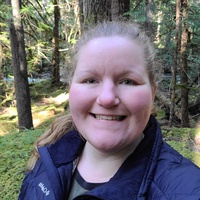
BA, MA
Research PG
- About
-
- Office Address
- School/Department
- School of Geosciences
Biography
Victoria received her Bachelor of Arts in History with a minor in Anthropology from Pacific Lutheran University in Tacoma, Washington. During her studies there, she developed a particular interest in trade networks and their impact on cultural dissemination.
After this, she moved to Ireland to pursue a MA in Museum Studies at the University College Cork. Her research focused on the decolonization practices of colonial museums and the policies that those institutions have put into place in recent years with the recent growth in public criticism of colonial era museums and collections.
In February 2022, she began her PhD under the supervision of Rick Knecht and Elisabeth Niklasson. Her project compares the ceramic assemblages from three Russian American settlements to identify hierarchical structures within the Russian American network and how access to goods within the network contributed to the development of socio-economic structures within individual settlements.
Qualifications
- MA Museum Studies2020 - University College Cork
- BA History2017 - Pacific Lutheran University
Minor in Anthropology
- Research
-
Current Research
Archaeological assemblages of ceramics from 18th and 19th century Russian American sites have predominantly been studied independent of other sites within the Russian American network. My current research explores the potential connections and patterns across sites, using examples from Fort Ross, California; Kodiak Island, Alaska; and Sitka, Alaska. The aim is to improve our understanding of the hierarchy of settlements within the network by cross-referencing ceramic assemblages and studying the composition and the location of certain goods within selected sites.
Network hierarchies are important as they have the ability to influence the socio-economic stratification of the occupants located in and around the settlements. How does network status affect access to goods being transported between settlements? How is access reflected in the resulting variation in the ceramic assemblages? And, importantly, what does this variation say about the social affordances of the ceramics and the status of the occupants? By using ceramics as a material lens and moving beyond individual sites, I argue that a wider understanding of the Russian American network becomes possible - one that can help us answer questions about whether access to goods led to the polarization of socio-economic status or a quasi-socialist distribution of goods among occupants.
Funding and Grants
2022:
Washington Order of the Amaranth Scholarship
2023:
ScAN ECR - Small Travel Award
Washington Order of the Amaranth Scholarship
